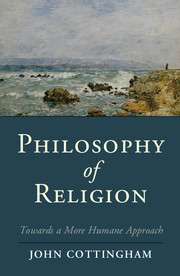4 - Morality
Published online by Cambridge University Press: 05 September 2014
Summary
Ki-attah adonay tov v'salach; ve'rab-hesed le-kol qoreykha. (‘For you Lord are good and ready to forgive; abounding in love to all who call to you.’)
PsalmsThe Source of Goodness
A theme that has surfaced at many points in the foregoing chapters is the idea of what may be called the primacy of the moral in religion. Religious belief is not chiefly to do with abstract metaphysical theories or the formulation of explanatory hypotheses about the origins and workings of the world, but takes as its central focus the deep structural problems of human life and our pressing need for moral transformation. A pivotal point of difference between a theistic and a nontheistic outlook, and arguably the most important area where the philosophical battles need to be fought, will thus concern the domain of value and morality: what is it that grounds our judgements of value, and what determines how we should act and live our lives?
For the believer, as suggested in the preceding chapter, perhaps the most crucial element in the way God is conceived is his goodness. The God who is the object of worship in the Judaeo-Christian and Islamic traditions is conceived of as the pattern and source of beauty and goodness. In the words of the seventeenth-century Cambridge Platonist philosopher Peter Sterry, the ‘stream of the divine love’ is the source of ‘all truths, goodness, joys, beauties and blessedness’. For the worshipper, involved in the praxis of daily or weekly liturgy, this idea is pretty much central, the basis of the sense of joy and exaltation experienced as one turns to God in praise and thanksgiving.
- Type
- Chapter
- Information
- Philosophy of ReligionTowards a More Humane Approach, pp. 72 - 97Publisher: Cambridge University PressPrint publication year: 2014



